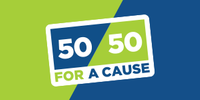Calving is a difficult job in the best of conditions but when temperatures plunge and windchill is below -40, it presents a new set of challenges.
"The most important thing when it's this cold is to prevent the baby calf from getting chilled," explained Dr. Carol Ross, a veterinarian with the Prairie Animal Health Centre. "Obviously they come out wet and they need to get dry as quick as possible. For most producers, that's going to mean that they are calving indoors. So they'll be calving in a barn, out of the wind. And potentially putting those newborn calves into some sort of a hotbox so they can have an external source of heat and get them dried off."
Special warm head-wear can also be used on the calves so their ears won't freeze.
She adds that it's important for calves to get warm so they will have their first feed.
"A calf isn't going to have their first suck if they get cold before they can get moving. So after you get them dried off, the second most important thing is getting the colostrum into the calf."
Colostrum is the first milk a cow will produce for it's calf.
"Colostrum has an important source of fat that the baby calf needs to burn as energy initially. It also come out warm so it helps to warm them up and gives them that important immunity for the rest of their life."
Dr. Ross also explained that when producers have many cows that are expecting, they will sort the cows into groups and bring those about to calve into the barns overnight when it's this cold.
"So if they do happen to calve, they're at least inside because outside in this windchill, a calf really wouldn't have a chance. It's a matter of paying really close attention and doing frequent checks and then getting them indoors for the actual event of calving."
She mentioned that calving season is well underway, epsecially the purebred calves in order to get their most mature bull calves to market next year.
She also noted that most producers will be drinking more than their share of coffee this time of year.
"It's a lot of work to calve in this weather so next time you're eating a hamburger, thank a local rancher."













